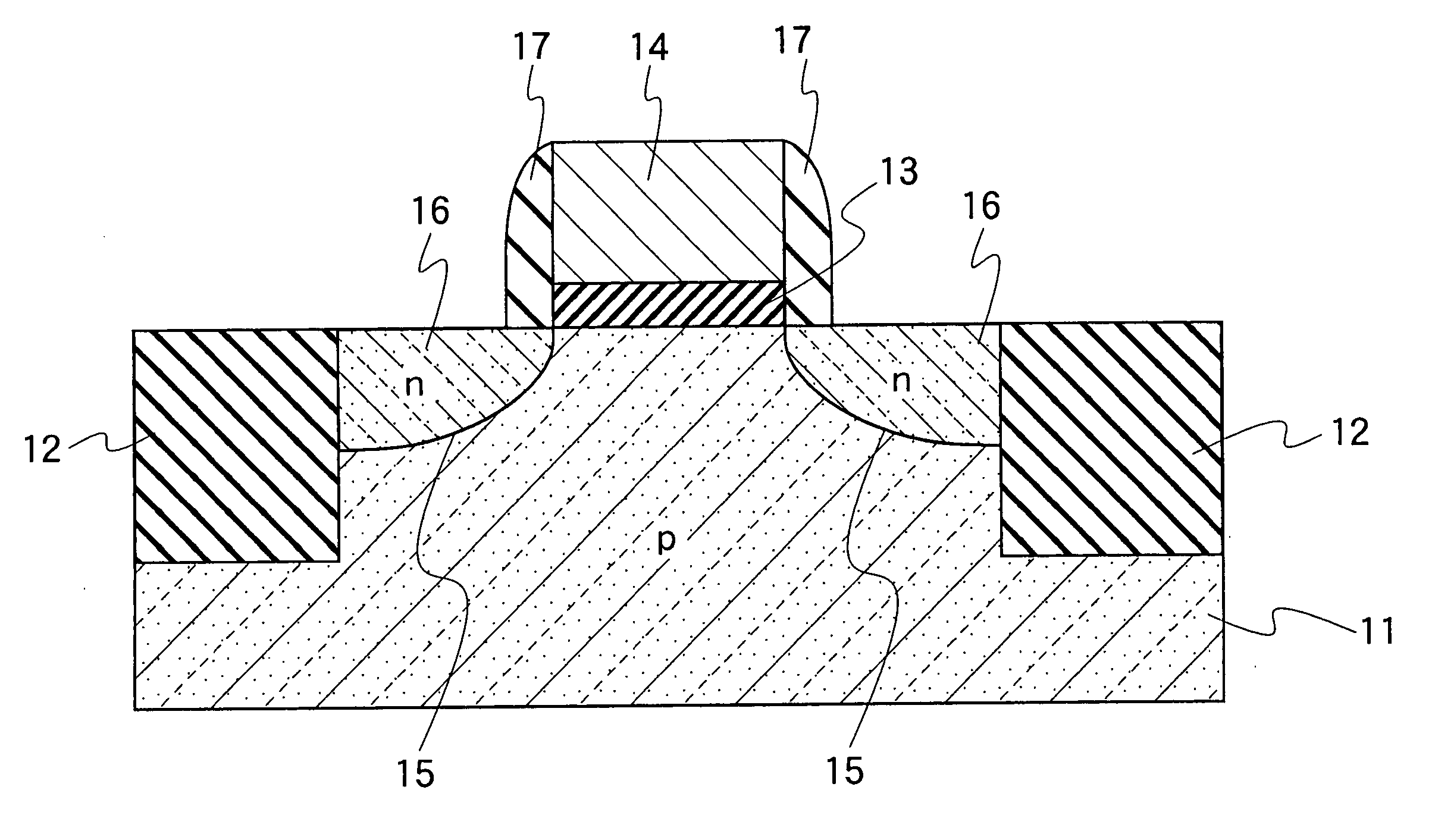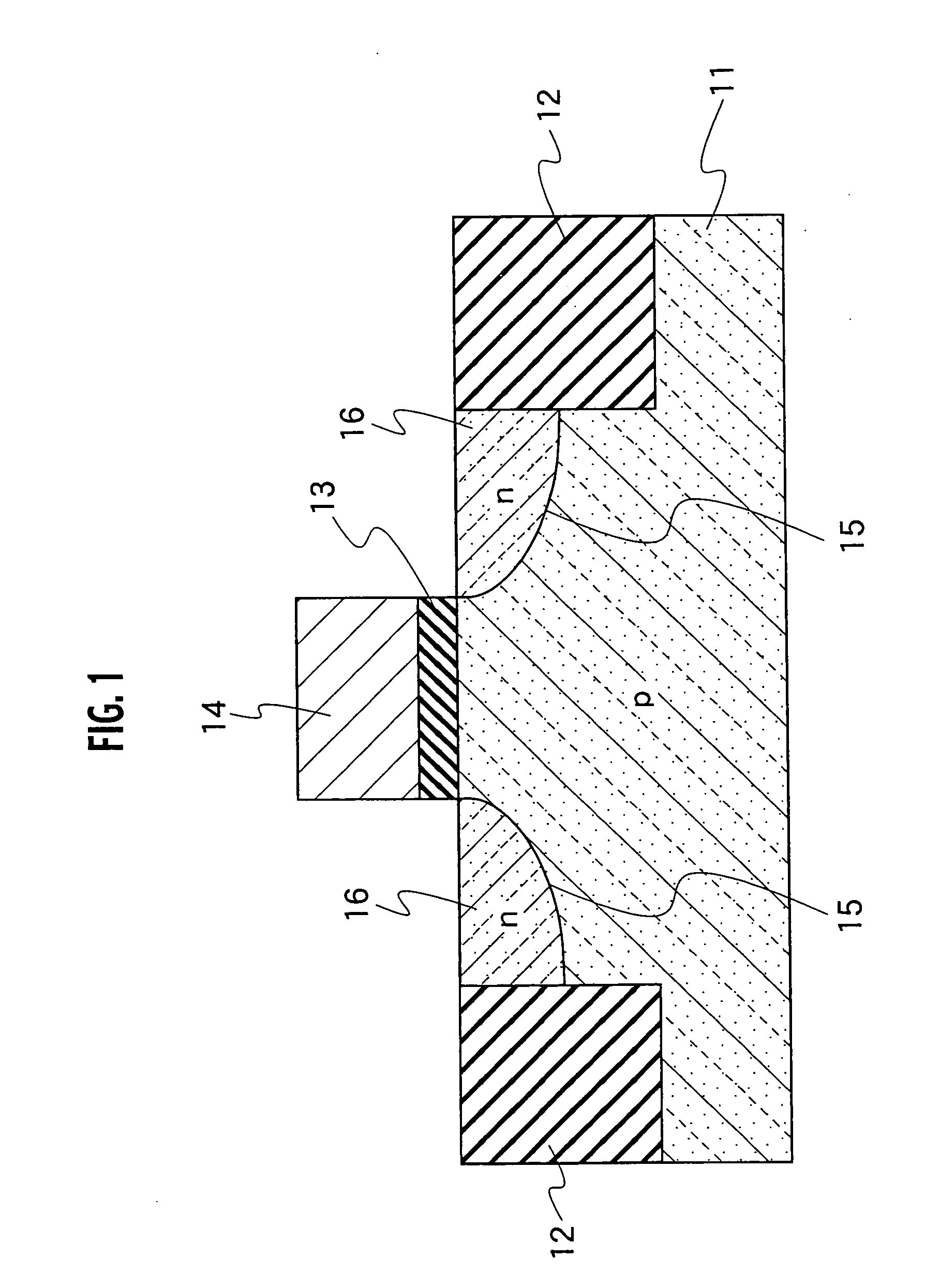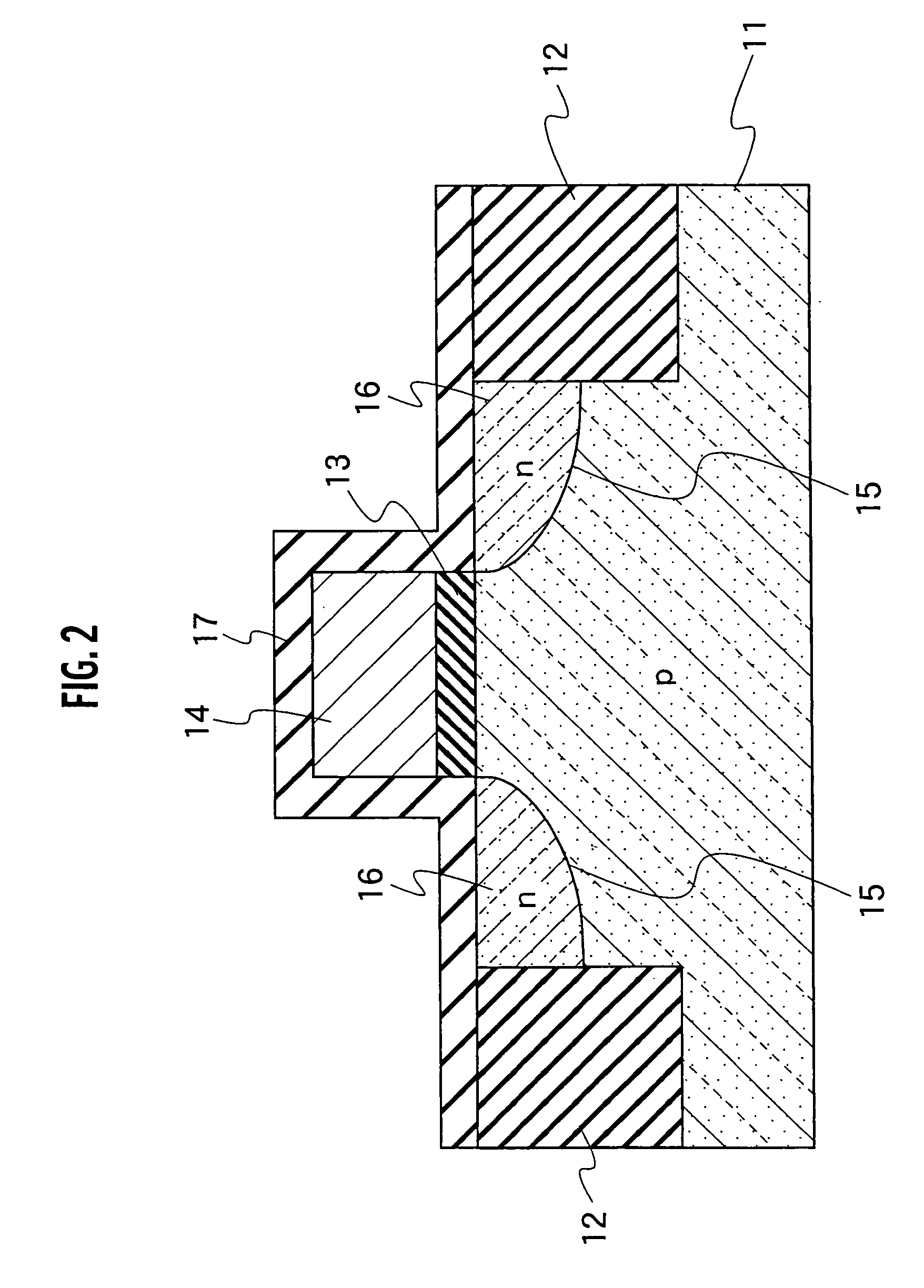Fabrication method for semiconductor device and manufacturing apparatus for the same
a manufacturing apparatus and semiconductor technology, applied in semiconductor devices, furnace types, furnaces, etc., can solve the problems of deterioration of the morphology of the surface layer of the semiconductor substrate after activation, inability to obtain the desired impurity profile, and interference by multiphoton processes
- Summary
- Abstract
- Description
- Claims
- Application Information
AI Technical Summary
Benefits of technology
Problems solved by technology
Method used
Image
Examples
first embodiment
[0037] A semiconductor device manufactured using a semiconductor device fabrication method according to a first embodiment of the present invention is, for example, a metal oxide semiconductor (MOS) field effect transistor, as shown in FIG. 6, configured with a semiconductor substrate 11, device isolation regions 12, a source and a drain region 18, a source and a drain extension region 15, a gate insulator layer 13, a gate electrode 14, and silicon oxide films 17, which are disposed on the sidewalls of the gate electrode 14. In FIG. 6, a source and a drain electrode are omitted. FIGS. 1 through 6 are cross-sectional process diagrams for describing a semiconductor device fabrication method according to the first embodiment of the present invention.
[0038] To begin with, the device isolation regions 12 formed with STIs (shallow trench isolation) or the like are formed on the semiconductor substrate 11 made of, for example, a monocrystalline silicon using an ordinary MOS transistor fab...
second embodiment
[0048] A semiconductor device manufactured using a semiconductor device fabrication method according to a second embodiment of the present invention is a MOS field effect transistor, which is configured with a semiconductor substrate 11, device isolation regions 12, a source and a drain region 18, a source and a drain extension region 15, a gate insulator layer 13, a gate electrode 14, silicon oxide films 17 disposed on the sidewalls of the gate electrode 14, and ion implanted layers 16 and 19, as shown in FIG. 8, for example. In FIG. 8, a source and a drain electrode are omitted. The structure shown in FIG. 8 is substantially the same as that shown in FIG. 6. However, since RTA processing is performed in place of the first FLA, a higher activation rate of the implanted ions in the ion implanted layers 16 and 19 is expected. A diffusion layer tends to extend deeper due to the RTA processing.
[0049] The semiconductor device fabrication method according to the second embodiment of the...
third embodiment
[0064] As with the second embodiment, a semiconductor device manufactured using a semiconductor device fabrication method according to a third embodiment of the present invention is a MOS field effect transistor, which is configured with a semiconductor substrate 11, device isolation regions 12, a source and a drain region 18, a source and a drain extension region 15, a gate insulator layer 13, a gate electrode 14, silicon oxide films 17, which are disposed on the sidewalls of the gate electrode 14, and ion implanted layers 16 and 19, as shown in FIG. 8, for example. In FIG. 8, a source and a drain electrode are omitted. In the third embodiment, as shown in FIG. 11, since the first FLA processing is performed in the annealing process for the activation of implanted ions (11), which begins immediately after the impurity doping process 1, a higher activation rate of implanted ions with the impurity doping process 1 is expected. The structure shown in FIG. 8 is substantially the same a...
PUM
 Login to View More
Login to View More Abstract
Description
Claims
Application Information
 Login to View More
Login to View More - R&D
- Intellectual Property
- Life Sciences
- Materials
- Tech Scout
- Unparalleled Data Quality
- Higher Quality Content
- 60% Fewer Hallucinations
Browse by: Latest US Patents, China's latest patents, Technical Efficacy Thesaurus, Application Domain, Technology Topic, Popular Technical Reports.
© 2025 PatSnap. All rights reserved.Legal|Privacy policy|Modern Slavery Act Transparency Statement|Sitemap|About US| Contact US: help@patsnap.com



